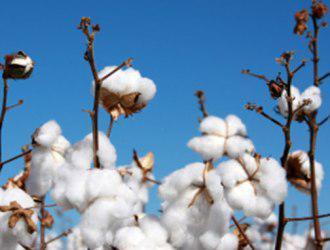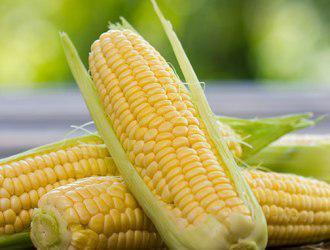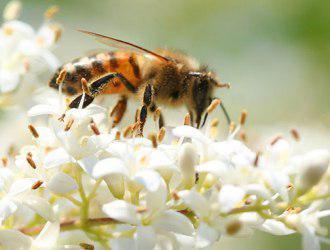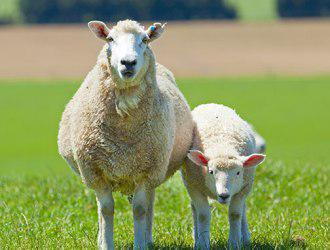
Genetically modified organisms (GMOs) are living organisms whose genetic material has been artificially manipulated in a laboratory through genetic engineering. This relatively new science creates unstable combinations of plant, animal, bacterial and viral genes that do not occur in nature or through traditional crossbreeding methods. To give you an idea of just how weird this can get, in 1991 a variety of tomato was engineered with genes from arctic flounder to make it frost-tolerant. Fortunately that product was never brought to market, but it is a good illustration of how unnatural GMOs are.
Almost all commercial GMOs are engineered to withstand direct application of herbicide and/or to produce an insecticide. Despite biotech industry promises, none of the GMO traits currently on the market offer increased yield, drought tolerance, enhanced nutrition, or any other consumer benefit.

Are GMOs Safe?
Most developed nations do not consider GMOs to be safe. In fact, in more than 60 countries around the world, including Australia, Japan, and all of the countries in the European Union, there are significant restrictions or outright bans on the production and sale of GMOs. In the U.S. and Canada, GMOs have been approved based on studies conducted by the same corporations that created them and profit from their sale.
A growing body of evidence connects GMOs with health problems, environmental damage and violation of farmers’ and consumers’ rights. At the Non-GMO Project we hear from people on a daily basis who are deeply concerned about the potential impacts of GMOs and are taking matters into their own hands by choosing to opt out of the GMO experiment.
Are GMOs Labe led?
led?
Unfortunately, even though polls consistently show that a significant majority of Americans want to know if the food they’re purchasing contains GMOs, the powerful biotech lobby has succeeded in keeping this information from being clearly presented to the public. The Non-GMO Project was created to give consumers the informed choice they deserve.
Over the past several years, the Right to Know effort has gained significant momentum throughout the United States and Canada. Through marches, rallies, petitions, social media, and targeted outreach campaigns, consumers are demanding that the government respect their right to know what’s in their food by labeling GMOs. The Non-GMO Project is working in partnership with these campaigns to bring awareness to the importance of consumers’ right to know and to support policy change that will help protect the food supply in the future.

Where do GMOs Show Up in My food?
With new forms of genetic engineering like synthetic biology and gene editing now entering the marketplace, keeping GMOs out of your shopping basket is trickier than ever. To keep it simple, look for the Non-GMO Project Verified Butterfly—that’s your best assurance that a product has been produced according to the most rigorous standards for GMO avoidance.
Crops
All of the following crops are in large-scale commercial production and are at high risk for being genetically engineered:
Alfalfa
Canola
Corn (except popcorn)
Cotton
Papaya
Soy
Sugar beets
Zucchini and yellow summer squash
Animal Products
Livestock, apiculture, and aquaculture products are at high risk because genetically engineered ingredients are common in animal feed; this impacts animal products such as:
Eggs
Milk
Meat
Honey
Seafood
Processed Inputs, Including from Synthetic Biology
GMOs also sneak into food in the form of processed crop derivatives and inputs derived from other forms of genetic engineering like synthetic biology; some examples include:
Corn syrup
Hydrolyzed vegetable protein
Molasses (from sugar beets)
Sucrose (from sugar beets)
Textured vegetable protein
Flavorings
Vitamins
Yeast products
Microbes
Enzymes
Synthetic biology inputs like flavors, eggs, milk, oils, fats, proteins, sweeteners, etc.
MONITORED CROPS & INPUTS
The Non-GMO Project carefully monitors the development of new genetically engineered products; we are currently tracking close to 100 products. Of those, we have included the following in our surveillance program, either because they will likely soon be widespread or because of known instances of contamination from GMOs:
Flax
Mustard
Rice
Wheat
Apple
Mushroom
Orange
Pineapple
Potato
Camelina (false flax)
Salmon
Sugarcane
Tomato
Some crops with cross-pollination risk: chard, table beets, rutabaga, Siberian kale, bok choy, mizuna, Chinese cabbage, turnip, rapini, tatsoi, acorn squash, delicata squash, patty pan squash, pumpkin, etc.

How Can I Avoid GMOs?
Because GMOs can be found in as much as 80% of conventional processed food in the United States, it can seem an overwhelming task to avoid GMOs. Planting an organic garden is a great way to be sure of what you’re eating. At the store, choose food and products that are Non-GMO Project Verified. Download the Non-GMO Project Shopping Guide app for your phone so you can scan products to see whether or not they have been verified. When Non-GMO Project Verified options are not available, choose Certified Organic products, or low GMO risk alternatives.

How Do GMOs Affect Farmers?
Because GMOs are novel life forms, biotechnology companies have been able to obtain patents with which to restrict their use. As a result, the companies that make GMOs now have the power to sue farmers whose fields are contaminated with GMOs, even when it is the result of inevitable drift from neighboring fields. GMOs therefore pose a serious threat to farmer sovereignty and to the national food security of any country where they are grown, including the United States and Canada.

How Do GMOs Impact the Environment?
Over 80% of all GMOs grown worldwide are engineered for herbicide tolerance. As a result, use of toxic herbicides like Roundup has increased 15 times since GMOs were introduced. GMO crops are also responsible for the emergence of “super weeds” and “super bugs,” which can only be killed with ever more toxic poisons like 2,4-D (a major ingredient in Agent Orange). GMOs are a direct extension of chemical agriculture and are developed and sold by the world’s biggest chemical companies. The long-term impacts of GMOs are unknown, and once released into the environment these novel organisms cannot be recalled.

How Do GMOs Affect Animals?
Much of the GMO corn and soy grown in North America is fed to animals, as is some of the canola and cotton. Which is why it is important to know what is in animal feed. If you are buying animal products form the store, look for the Non-GMO Project label or choose Certified Organic products.
Do We Need GMOs?
We don’t need GMOs…and here are 10 reasons why:
1. GMO crops do not increase yield potential.
2. GMO crops increase the use of pesticides.
3. GMO crops have created “superweeds”.
4. GMO crops have toxic or allergenic effects on laboratory animals.
5. GMO and non-GM crops cannot “coexist”.
6. Genetic engineering is not needed for good nutrition.
7. There are better ways to feed the world.
8. Conventional breeding is better than genetic engineering at producing crops with useful traits.
9. Genetic engineering is an imprecise technology that will continue to deliver unpleasant surprises.
10. GMO crops are not about feeding the world but about patented ownership of the food supply.
This article is provided by livingnongmo.org
